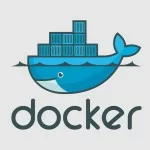Multimaster Kubernetes Cluster on Amazon Using Kops
Getting Started with Kubernetes 1.4 using Spring Boot and Couchbase explains how to get started with Kubernetes 1.4 on Amazon Web Services. A Couchbase service is created in the cluster and a Spring Boot application stores a JSON document in the database. It uses kube-up.sh script from the Kubernetes binary download at github.com/kubernetes/kubernetes/releases/download/v1.4.0/kubernetes.tar.gz to start the cluster. This script is capable of creating a Kubernetes cluster with single master only. This is a fundamental flaw of distributed applications where the master becomes a Single Point of Failure.
Meet kops – short for Kubernetes Operations.
This is the easiest way to get a highly-available Kubernetes cluster up and running. The kubectl script is the CLI for running commands against running clusters. Think of kops as kubectl for cluster.
This blog will show how to create a highly-available Kubernetes cluster on Amazon using kops. And once the cluster is created, then it’ll create a Couchbase service on it and run a Spring Boot application to store JSON document in the database.
Many thanks to justinsb, sarahz, razic, jaygorrell, shrugs, bkpandey and others at Kubernetes slack channel for helping me through the details!
Download kops and kubectl
- Download Kops latest release. This blog was tested with 1.4.1 on OSX.Complete set of commands for
kopscan be seen:
01 02 03 04 05 06 07 08 09 10 11 12 13 14 15 16 17 18 19 20 21 22 23 24 25 26 27 28 29 30 31 | Usage: kops [command] Available Commands: create create resources delete delete clusters describe describe objects edit edit items export export clusters/kubecfg get list or get objects import import clusters rolling-update rolling update clusters secrets Manage secrets & keys toolbox Misc infrequently used commands update update clusters upgrade upgrade clusters version Print the client version information Flags: --alsologtostderr log to standard error as well as files --config string config file (default is $HOME/.kops.yaml) --log_backtrace_at traceLocation when logging hits line file:N, emit a stack trace (default :0) --log_dir string If non-empty, write log files in this directory --logtostderr log to standard error instead of files (default false) --name string Name of cluster --state string Location of state storage --stderrthreshold severity logs at or above this threshold go to stderr (default 2) -v, --v Level log level for V logs --vmodule moduleSpec comma-separated list of pattern=N settings for file-filtered logging Use "kops [command] --help" for more information about a command. |
- Download
kubectl:
1 | curl -Lo kubectl http://storage.googleapis.com/kubernetes-release/release/v1.4.1/bin/darwin/amd64/kubectl && chmod +x kubectl |
- Include
kubectlin yourPATH.
Create Bucket and NS Records on Amazon
There is a bit of setup involved at this time, and hopefully this will get cleaned up over next releases. Bringing up a cluster on AWS provide detailed steps and more background. Here is what the blog followed:
- Pick a domain where Kubernetes cluster will be hosted. This blog uses
kubernetes.arungupta.medomain. You can pick a top level domain or a sub-domain. - Amazon Route 53 is a highly available and scalable DNS service. Login to Amazon Console and created a hosted zone for this domain using Route 53 service
Created zone looks like:
The values shown in the Value column are important as they’ll be used later for creating NS records.
- Create a S3 bucket using Amazon Console to store cluster configuration – this is called
state store.
- The domain
kubernetes.arungupta.meis hosted on GoDaddy. For each value shown in the Value column of Route53 hosted zone, create a NS record using GoDaddy Domain Control Center for this domain.Select the type of record:
For each value, add the record as shown:
Completed set of records look
Start Kubernetes Multimaster Cluster
Let’s understand a bit about Amazon regions and zones:
Amazon EC2 is hosted in multiple locations world-wide. These locations are composed of regions and Availability Zones. Each region is a separate geographic area. Each region has multiple, isolated locations known as Availability Zones.
A highly-available Kubernetes cluster can be created across zones but not across regions.
- Find out availability zones within a region:
01 02 03 04 05 06 07 08 09 10 11 12 13 14 15 16 17 18 19 20 21 22 23 | aws ec2 describe-availability-zones --region us-west-2{ "AvailabilityZones": [ { "State": "available", "RegionName": "us-west-2", "Messages": [], "ZoneName": "us-west-2a" }, { "State": "available", "RegionName": "us-west-2", "Messages": [], "ZoneName": "us-west-2b" }, { "State": "available", "RegionName": "us-west-2", "Messages": [], "ZoneName": "us-west-2c" } ]} |
- Create a multi-master cluster:
1 | kops-darwin-amd64 create cluster --name=kubernetes.arungupta.me --cloud=aws --zones=us-west-2a,us-west-2b,us-west-2c --master-size=m4.large --node-count=3 --node-size=m4.2xlarge --master-zones=us-west-2a,us-west-2b,us-west-2c --state=s3://kops-couchbase --yes |
Most of the switches are self-explanatory. Some switches need a bit of explanation:
- Specifying multiple zones using
--master-zones(must be odd number) create multiple masters across AZ --cloud=awsis optional if cloud can be inferred from zones--yesis used to specify the immediate creation of cluster. Otherwise only the state is stored in the bucket, and the cluster needs to be created separately.
Complete set of CLI switches can be seen:
01 02 03 04 05 06 07 08 09 10 11 12 13 14 15 16 17 18 19 20 21 22 23 24 25 26 27 28 29 30 31 32 33 34 35 36 37 38 39 40 | ./kops-darwin-amd64 create cluster --helpCreates a k8s cluster. Usage: kops create cluster [flags] Flags: --admin-access string Restrict access to admin endpoints (SSH, HTTPS) to this CIDR. If not set, access will not be restricted by IP. --associate-public-ip Specify --associate-public-ip=[true|false] to enable/disable association of public IP for master ASG and nodes. Default is 'true'. (default true) --channel string Channel for default versions and configuration to use (default "stable") --cloud string Cloud provider to use - gce, aws --dns-zone string DNS hosted zone to use (defaults to last two components of cluster name) --image string Image to use --kubernetes-version string Version of kubernetes to run (defaults to version in channel) --master-size string Set instance size for masters --master-zones string Zones in which to run masters (must be an odd number) --model string Models to apply (separate multiple models with commas) (default "config,proto,cloudup") --network-cidr string Set to override the default network CIDR --networking string Networking mode to use. kubenet (default), classic, external. (default "kubenet") --node-count int Set the number of nodes --node-size string Set instance size for nodes --out string Path to write any local output --project string Project to use (must be set on GCE) --ssh-public-key string SSH public key to use (default "~/.ssh/id_rsa.pub") --target string Target - direct, terraform (default "direct") --vpc string Set to use a shared VPC --yes Specify --yes to immediately create the cluster --zones string Zones in which to run the cluster Global Flags: --alsologtostderr log to standard error as well as files --config string config file (default is $HOME/.kops.yaml) --log_backtrace_at traceLocation when logging hits line file:N, emit a stack trace (default :0) --log_dir string If non-empty, write log files in this directory --logtostderr log to standard error instead of files (default false) --name string Name of cluster --state string Location of state storage --stderrthreshold severity logs at or above this threshold go to stderr (default 2) -v, --v Level log level for V logs --vmodule moduleSpec comma-separated list of pattern=N settings for file-filtered logging |
- Once the cluster is created, get more details about the cluster:
1 2 3 4 5 | kubectl cluster-infoKubernetes master is running at https://api.kubernetes.arungupta.meKubeDNS is running at https://api.kubernetes.arungupta.me/api/v1/proxy/namespaces/kube-system/services/kube-dns To further debug and diagnose cluster problems, use 'kubectl cluster-info dump'. |
- Check cluster client and server version:
1 2 3 | kubectl versionClient Version: version.Info{Major:"1", Minor:"4", GitVersion:"v1.4.1", GitCommit:"33cf7b9acbb2cb7c9c72a10d6636321fb180b159", GitTreeState:"clean", BuildDate:"2016-10-10T18:19:49Z", GoVersion:"go1.7.1", Compiler:"gc", Platform:"darwin/amd64"}Server Version: version.Info{Major:"1", Minor:"4", GitVersion:"v1.4.3", GitCommit:"4957b090e9a4f6a68b4a40375408fdc74a212260", GitTreeState:"clean", BuildDate:"2016-10-16T06:20:04Z", GoVersion:"go1.6.3", Compiler:"gc", Platform:"linux/amd64"} |
- Check all nodes in the cluster:
1 2 3 4 5 6 7 8 | kubectl get nodes NAME STATUS AGEip-172-20-111-151.us-west-2.compute.internal Ready 1hip-172-20-116-40.us-west-2.compute.internal Ready 1hip-172-20-48-41.us-west-2.compute.internal Ready 1hip-172-20-49-105.us-west-2.compute.internal Ready 1hip-172-20-80-233.us-west-2.compute.internal Ready 1hip-172-20-82-93.us-west-2.compute.internal Ready 1h |
Or find out only the master nodes:
1 2 3 4 5 | kubectl get nodes -l kubernetes.io/role=masterNAME STATUS AGEip-172-20-111-151.us-west-2.compute.internal Ready 1hip-172-20-48-41.us-west-2.compute.internal Ready 1hip-172-20-82-93.us-west-2.compute.internal Ready 1h |
- Check all the clusters:
1 2 3 | kops-darwin-amd64 get clusters --state=s3://kops-couchbaseNAME CLOUD ZONESkubernetes.arungupta.me aws us-west-2a,us-west-2b,us-west-2c |
Kubernetes Dashboard Addon
By default, a cluster created using kops does not have the UI dashboard. But this can be added as an add on:
1 2 3 | kubectl create -f https://raw.githubusercontent.com/kubernetes/kops/master/addons/kubernetes-dashboard/v1.4.0.yamldeployment "kubernetes-dashboard-v1.4.0" createdservice "kubernetes-dashboard" created |
Now complete details about the cluster can be seen:
1 2 3 4 5 6 | kubectl cluster-infoKubernetes master is running at https://api.kubernetes.arungupta.meKubeDNS is running at https://api.kubernetes.arungupta.me/api/v1/proxy/namespaces/kube-system/services/kube-dnskubernetes-dashboard is running at https://api.kubernetes.arungupta.me/api/v1/proxy/namespaces/kube-system/services/kubernetes-dashboard To further debug and diagnose cluster problems, use 'kubectl cluster-info dump'. |
And the Kubernetes UI dashboard is at the shown URL. In our case, this is https://api.kubernetes.arungupta.me/ui and looks like:
Credentials for accessing this dashboard can be obtained using the kubectl config view command. The values are shown like:
1 2 3 4 | - name: kubernetes.arungupta.me-basic-auth user: password: PASSWORD username: admin |
Deploy Couchbase Service
As explained in Getting Started with Kubernetes 1.4 using Spring Boot and Couchbase, let’s run a Couchbase service:
1 2 3 | kubectl create -f ~/workspaces/kubernetes-java-sample/maven/couchbase-service.yml service "couchbase-service" createdreplicationcontroller "couchbase-rc" created |
This configuration file is at github.com/arun-gupta/kubernetes-java-sample/blob/master/maven/couchbase-service.yml.
Get the list of services:
1 2 3 4 | kubectl get svcNAME CLUSTER-IP EXTERNAL-IP PORT(S) AGEcouchbase-service 100.65.4.139 <none> 8091/TCP,8092/TCP,8093/TCP,11210/TCP 27skubernetes 100.64.0.1 <none> 443/TCP 2h |
Describe the service:
01 02 03 04 05 06 07 08 09 10 11 12 13 14 15 16 | kubectl describe svc/couchbase-serviceName: couchbase-serviceNamespace: defaultLabels: <none>Selector: app=couchbase-rc-podType: ClusterIPIP: 100.65.4.139Port: admin 8091/TCPEndpoints: 100.96.5.2:8091Port: views 8092/TCPEndpoints: 100.96.5.2:8092Port: query 8093/TCPEndpoints: 100.96.5.2:8093Port: memcached 11210/TCPEndpoints: 100.96.5.2:11210Session Affinity: None |
Get the pods:
1 2 3 | kubectl get podsNAME READY STATUS RESTARTS AGEcouchbase-rc-e35v5 1/1 Running 0 1m |
Run Spring Boot Application
The Spring Boot application runs against the Couchbase service and stores a JSON document in it.
Start the Spring Boot application:
1 2 | kubectl create -f ~/workspaces/kubernetes-java-sample/maven/bootiful-couchbase.yml job "bootiful-couchbase" created |
This configuration file is at github.com/arun-gupta/kubernetes-java-sample/blob/master/maven/bootiful-couchbase.yml.
See list of all the pods:
1 2 3 4 5 | <kubectl get pods --show-allNAME READY STATUS RESTARTS AGEbootiful-couchbase-ainv8 0/1 Completed 0 1mcouchbase-rc-e35v5 1/1 Running 0 3m |
Check logs of the complete pod:
01 02 03 04 05 06 07 08 09 10 11 12 13 14 15 16 17 18 19 20 21 22 23 24 25 | kubectl logs bootiful-couchbase-ainv8. ____ _ __ _ _/\\ / ___'_ __ _ _(_)_ __ __ _ \ \ \ \( ( )\___ | '_ | '_| | '_ \/ _` | \ \ \ \\\/ ___)| |_)| | | | | || (_| | ) ) ) )' |____| .__|_| |_|_| |_\__, | / / / /=========|_|==============|___/=/_/_/_/:: Spring Boot :: (v1.4.0.RELEASE)2016-11-02 18:48:56.035 INFO 7 --- [ main] org.example.webapp.Application : Starting Application v1.0-SNAPSHOT on bootiful-couchbase-ainv8 with PID 7 (/maven/bootiful-couchbase.jar started by root in /)2016-11-02 18:48:56.040 INFO 7 --- [ main] org.example.webapp.Application : No active profile set, falling back to default profiles: default2016-11-02 18:48:56.115 INFO 7 --- [ main] s.c.a.AnnotationConfigApplicationContext : Refreshing org.springframework.context.annotation.AnnotationConfigApplicationContext@108c4c35: startup date [Wed Nov 02 18:48:56 UTC 2016]; root of context hierarchy2016-11-02 18:48:57.021 INFO 7 --- [ main] com.couchbase.client.core.CouchbaseCore : CouchbaseEnvironment: {sslEnabled=false, sslKeystoreFile='null', sslKeystorePassword='null', queryEnabled=false, queryPort=8093, bootstrapHttpEnabled=true, bootstrapCarrierEnabled=true, bootstrapHttpDirectPort=8091, bootstrapHttpSslPort=18091, bootstrapCarrierDirectPort=11210, bootstrapCarrierSslPort=11207, ioPoolSize=8, computationPoolSize=8, responseBufferSize=16384, requestBufferSize=16384, kvServiceEndpoints=1, viewServiceEndpoints=1, queryServiceEndpoints=1, searchServiceEndpoints=1, ioPool=NioEventLoopGroup, coreScheduler=CoreScheduler, eventBus=DefaultEventBus, packageNameAndVersion=couchbase-java-client/2.2.8 (git: 2.2.8, core: 1.2.9), dcpEnabled=false, retryStrategy=BestEffort, maxRequestLifetime=75000, retryDelay=ExponentialDelay{growBy 1.0 MICROSECONDS, powers of 2; lower=100, upper=100000}, reconnectDelay=ExponentialDelay{growBy 1.0 MILLISECONDS, powers of 2; lower=32, upper=4096}, observeIntervalDelay=ExponentialDelay{growBy 1.0 MICROSECONDS, powers of 2; lower=10, upper=100000}, keepAliveInterval=30000, autoreleaseAfter=2000, bufferPoolingEnabled=true, tcpNodelayEnabled=true, mutationTokensEnabled=false, socketConnectTimeout=1000, dcpConnectionBufferSize=20971520, dcpConnectionBufferAckThreshold=0.2, dcpConnectionName=dcp/core-io, callbacksOnIoPool=false, queryTimeout=7500, viewTimeout=7500, kvTimeout=2500, connectTimeout=5000, disconnectTimeout=25000, dnsSrvEnabled=false}2016-11-02 18:48:57.245 INFO 7 --- [ cb-io-1-1] com.couchbase.client.core.node.Node : Connected to Node couchbase-service2016-11-02 18:48:57.291 INFO 7 --- [ cb-io-1-1] com.couchbase.client.core.node.Node : Disconnected from Node couchbase-service2016-11-02 18:48:57.533 INFO 7 --- [ cb-io-1-2] com.couchbase.client.core.node.Node : Connected to Node couchbase-service2016-11-02 18:48:57.638 INFO 7 --- [-computations-4] c.c.c.core.config.ConfigurationProvider : Opened bucket books2016-11-02 18:48:58.152 INFO 7 --- [ main] o.s.j.e.a.AnnotationMBeanExporter : Registering beans for JMX exposure on startupBook{isbn=978-1-4919-1889-0, name=Minecraft Modding with Forge, cost=29.99}2016-11-02 18:48:58.402 INFO 7 --- [ main] org.example.webapp.Application : Started Application in 2.799 seconds (JVM running for 3.141)2016-11-02 18:48:58.403 INFO 7 --- [ Thread-5] s.c.a.AnnotationConfigApplicationContext : Closing org.springframework.context.annotation.AnnotationConfigApplicationContext@108c4c35: startup date [Wed Nov 02 18:48:56 UTC 2016]; root of context hierarchy2016-11-02 18:48:58.404 INFO 7 --- [ Thread-5] o.s.j.e.a.AnnotationMBeanExporter : Unregistering JMX-exposed beans on shutdown2016-11-02 18:48:58.410 INFO 7 --- [ cb-io-1-2] com.couchbase.client.core.node.Node : Disconnected from Node couchbase-service2016-11-02 18:48:58.410 INFO 7 --- [ Thread-5] c.c.c.core.config.ConfigurationProvider : Closed bucket books |
The updated dashboard now looks like:
Delete the Kubernetes Cluster
Kubernetes cluster can be deleted as:
001 002 003 004 005 006 007 008 009 010 011 012 013 014 015 016 017 018 019 020 021 022 023 024 025 026 027 028 029 030 031 032 033 034 035 036 037 038 039 040 041 042 043 044 045 046 047 048 049 050 051 052 053 054 055 056 057 058 059 060 061 062 063 064 065 066 067 068 069 070 071 072 073 074 075 076 077 078 079 080 081 082 083 084 085 086 087 088 089 090 091 092 093 094 095 096 097 098 099 100 101 102 103 104 105 106 107 108 109 110 111 112 113 114 115 116 117 118 119 120 121 122 123 124 125 126 127 128 129 130 131 132 133 134 135 136 137 138 139 140 141 142 143 144 145 146 147 148 149 150 151 152 153 154 155 156 157 158 159 160 161 162 163 164 165 166 167 168 169 170 171 172 173 174 175 176 177 178 179 180 181 182 183 184 185 186 187 188 189 190 191 192 193 194 | kops-darwin-amd64 delete cluster --name=kubernetes.arungupta.me --state=s3://kops-couchbase --yesTYPE NAME IDautoscaling-config master-us-west-2a.masters.kubernetes.arungupta.me-20161101235639 master-us-west-2a.masters.kubernetes.arungupta.me-20161101235639autoscaling-config master-us-west-2b.masters.kubernetes.arungupta.me-20161101235639 master-us-west-2b.masters.kubernetes.arungupta.me-20161101235639autoscaling-config master-us-west-2c.masters.kubernetes.arungupta.me-20161101235639 master-us-west-2c.masters.kubernetes.arungupta.me-20161101235639autoscaling-config nodes.kubernetes.arungupta.me-20161101235639 nodes.kubernetes.arungupta.me-20161101235639autoscaling-group master-us-west-2a.masters.kubernetes.arungupta.me master-us-west-2a.masters.kubernetes.arungupta.meautoscaling-group master-us-west-2b.masters.kubernetes.arungupta.me master-us-west-2b.masters.kubernetes.arungupta.meautoscaling-group master-us-west-2c.masters.kubernetes.arungupta.me master-us-west-2c.masters.kubernetes.arungupta.meautoscaling-group nodes.kubernetes.arungupta.me nodes.kubernetes.arungupta.medhcp-options kubernetes.arungupta.me dopt-9b7b08ffiam-instance-profile masters.kubernetes.arungupta.me masters.kubernetes.arungupta.meiam-instance-profile nodes.kubernetes.arungupta.me nodes.kubernetes.arungupta.meiam-role masters.kubernetes.arungupta.me masters.kubernetes.arungupta.meiam-role nodes.kubernetes.arungupta.me nodes.kubernetes.arungupta.meinstance master-us-west-2a.masters.kubernetes.arungupta.me i-8798eb9finstance master-us-west-2b.masters.kubernetes.arungupta.me i-eca96ab3instance master-us-west-2c.masters.kubernetes.arungupta.me i-63fd3dbfinstance nodes.kubernetes.arungupta.me i-21a96a7einstance nodes.kubernetes.arungupta.me i-57fb3b8binstance nodes.kubernetes.arungupta.me i-5c99ea44internet-gateway kubernetes.arungupta.me igw-b624abd2keypair kubernetes.kubernetes.arungupta.me-18:90:41:6f:5f:79:6a:a8:d5:b6:b8:3f:10:d5:d3:f3 kubernetes.kubernetes.arungupta.me-18:90:41:6f:5f:79:6a:a8:d5:b6:b8:3f:10:d5:d3:f3route-table kubernetes.arungupta.me rtb-e44df183route53-record api.internal.kubernetes.arungupta.me. Z6I41VJM5VCZV/api.internal.kubernetes.arungupta.me.route53-record api.kubernetes.arungupta.me. Z6I41VJM5VCZV/api.kubernetes.arungupta.me.route53-record etcd-events-us-west-2a.internal.kubernetes.arungupta.me. Z6I41VJM5VCZV/etcd-events-us-west-2a.internal.kubernetes.arungupta.me.route53-record etcd-events-us-west-2b.internal.kubernetes.arungupta.me. Z6I41VJM5VCZV/etcd-events-us-west-2b.internal.kubernetes.arungupta.me.route53-record etcd-events-us-west-2c.internal.kubernetes.arungupta.me. Z6I41VJM5VCZV/etcd-events-us-west-2c.internal.kubernetes.arungupta.me.route53-record etcd-us-west-2a.internal.kubernetes.arungupta.me. Z6I41VJM5VCZV/etcd-us-west-2a.internal.kubernetes.arungupta.me.route53-record etcd-us-west-2b.internal.kubernetes.arungupta.me. Z6I41VJM5VCZV/etcd-us-west-2b.internal.kubernetes.arungupta.me.route53-record etcd-us-west-2c.internal.kubernetes.arungupta.me. Z6I41VJM5VCZV/etcd-us-west-2c.internal.kubernetes.arungupta.me.security-group masters.kubernetes.arungupta.me sg-3e790f47security-group nodes.kubernetes.arungupta.me sg-3f790f46subnet us-west-2a.kubernetes.arungupta.me subnet-3cdbc958subnet us-west-2b.kubernetes.arungupta.me subnet-18c3f76esubnet us-west-2c.kubernetes.arungupta.me subnet-b30f6debvolume us-west-2a.etcd-events.kubernetes.arungupta.me vol-202350a8volume us-west-2a.etcd-main.kubernetes.arungupta.me vol-0a235082volume us-west-2b.etcd-events.kubernetes.arungupta.me vol-401f5bf4volume us-west-2b.etcd-main.kubernetes.arungupta.me vol-691f5bddvolume us-west-2c.etcd-events.kubernetes.arungupta.me vol-aefe163bvolume us-west-2c.etcd-main.kubernetes.arungupta.me vol-e9fd157cvpc kubernetes.arungupta.me vpc-e5f50382 internet-gateway:igw-b624abd2 still has dependencies, will retrykeypair:kubernetes.kubernetes.arungupta.me-18:90:41:6f:5f:79:6a:a8:d5:b6:b8:3f:10:d5:d3:f3 okinstance:i-5c99ea44 okinstance:i-63fd3dbf okinstance:i-eca96ab3 okinstance:i-21a96a7e okautoscaling-group:master-us-west-2a.masters.kubernetes.arungupta.me okautoscaling-group:master-us-west-2b.masters.kubernetes.arungupta.me okautoscaling-group:master-us-west-2c.masters.kubernetes.arungupta.me okautoscaling-group:nodes.kubernetes.arungupta.me okiam-instance-profile:nodes.kubernetes.arungupta.me okiam-instance-profile:masters.kubernetes.arungupta.me okinstance:i-57fb3b8b okinstance:i-8798eb9f okroute53-record:Z6I41VJM5VCZV/etcd-events-us-west-2a.internal.kubernetes.arungupta.me. okiam-role:nodes.kubernetes.arungupta.me okiam-role:masters.kubernetes.arungupta.me okautoscaling-config:nodes.kubernetes.arungupta.me-20161101235639 okautoscaling-config:master-us-west-2b.masters.kubernetes.arungupta.me-20161101235639 oksubnet:subnet-b30f6deb still has dependencies, will retrysubnet:subnet-3cdbc958 still has dependencies, will retrysubnet:subnet-18c3f76e still has dependencies, will retryautoscaling-config:master-us-west-2a.masters.kubernetes.arungupta.me-20161101235639 okautoscaling-config:master-us-west-2c.masters.kubernetes.arungupta.me-20161101235639 okvolume:vol-0a235082 still has dependencies, will retryvolume:vol-202350a8 still has dependencies, will retryvolume:vol-401f5bf4 still has dependencies, will retryvolume:vol-e9fd157c still has dependencies, will retryvolume:vol-aefe163b still has dependencies, will retryvolume:vol-691f5bdd still has dependencies, will retrysecurity-group:sg-3f790f46 still has dependencies, will retrysecurity-group:sg-3e790f47 still has dependencies, will retryNot all resources deleted; waiting before reattempting deletion internet-gateway:igw-b624abd2 security-group:sg-3f790f46 volume:vol-aefe163b route-table:rtb-e44df183 volume:vol-401f5bf4 subnet:subnet-18c3f76e security-group:sg-3e790f47 volume:vol-691f5bdd subnet:subnet-3cdbc958 volume:vol-202350a8 volume:vol-0a235082 dhcp-options:dopt-9b7b08ff subnet:subnet-b30f6deb volume:vol-e9fd157c vpc:vpc-e5f50382internet-gateway:igw-b624abd2 still has dependencies, will retryvolume:vol-e9fd157c still has dependencies, will retrysubnet:subnet-3cdbc958 still has dependencies, will retrysubnet:subnet-18c3f76e still has dependencies, will retrysubnet:subnet-b30f6deb still has dependencies, will retryvolume:vol-0a235082 still has dependencies, will retryvolume:vol-aefe163b still has dependencies, will retryvolume:vol-691f5bdd still has dependencies, will retryvolume:vol-202350a8 still has dependencies, will retryvolume:vol-401f5bf4 still has dependencies, will retrysecurity-group:sg-3f790f46 still has dependencies, will retrysecurity-group:sg-3e790f47 still has dependencies, will retryNot all resources deleted; waiting before reattempting deletion subnet:subnet-b30f6deb volume:vol-e9fd157c vpc:vpc-e5f50382 internet-gateway:igw-b624abd2 security-group:sg-3f790f46 volume:vol-aefe163b route-table:rtb-e44df183 volume:vol-401f5bf4 subnet:subnet-18c3f76e security-group:sg-3e790f47 volume:vol-691f5bdd subnet:subnet-3cdbc958 volume:vol-202350a8 volume:vol-0a235082 dhcp-options:dopt-9b7b08ffsubnet:subnet-18c3f76e still has dependencies, will retrysubnet:subnet-b30f6deb still has dependencies, will retryinternet-gateway:igw-b624abd2 still has dependencies, will retrysubnet:subnet-3cdbc958 still has dependencies, will retryvolume:vol-691f5bdd still has dependencies, will retryvolume:vol-0a235082 still has dependencies, will retryvolume:vol-202350a8 still has dependencies, will retryvolume:vol-401f5bf4 still has dependencies, will retryvolume:vol-aefe163b still has dependencies, will retryvolume:vol-e9fd157c still has dependencies, will retrysecurity-group:sg-3e790f47 still has dependencies, will retrysecurity-group:sg-3f790f46 still has dependencies, will retryNot all resources deleted; waiting before reattempting deletion internet-gateway:igw-b624abd2 security-group:sg-3f790f46 volume:vol-aefe163b route-table:rtb-e44df183 volume:vol-401f5bf4 subnet:subnet-18c3f76e security-group:sg-3e790f47 volume:vol-691f5bdd subnet:subnet-3cdbc958 volume:vol-202350a8 volume:vol-0a235082 dhcp-options:dopt-9b7b08ff subnet:subnet-b30f6deb volume:vol-e9fd157c vpc:vpc-e5f50382subnet:subnet-b30f6deb still has dependencies, will retryvolume:vol-202350a8 still has dependencies, will retryinternet-gateway:igw-b624abd2 still has dependencies, will retrysubnet:subnet-18c3f76e still has dependencies, will retryvolume:vol-e9fd157c still has dependencies, will retryvolume:vol-aefe163b still has dependencies, will retryvolume:vol-401f5bf4 still has dependencies, will retryvolume:vol-691f5bdd still has dependencies, will retrysecurity-group:sg-3e790f47 still has dependencies, will retrysecurity-group:sg-3f790f46 still has dependencies, will retrysubnet:subnet-3cdbc958 still has dependencies, will retryvolume:vol-0a235082 still has dependencies, will retryNot all resources deleted; waiting before reattempting deletion internet-gateway:igw-b624abd2 security-group:sg-3f790f46 volume:vol-aefe163b route-table:rtb-e44df183 subnet:subnet-18c3f76e security-group:sg-3e790f47 volume:vol-691f5bdd volume:vol-401f5bf4 volume:vol-202350a8 subnet:subnet-3cdbc958 volume:vol-0a235082 dhcp-options:dopt-9b7b08ff subnet:subnet-b30f6deb volume:vol-e9fd157c vpc:vpc-e5f50382subnet:subnet-18c3f76e okvolume:vol-e9fd157c okvolume:vol-401f5bf4 okvolume:vol-0a235082 okvolume:vol-691f5bdd oksubnet:subnet-3cdbc958 okvolume:vol-aefe163b oksubnet:subnet-b30f6deb okinternet-gateway:igw-b624abd2 okvolume:vol-202350a8 oksecurity-group:sg-3f790f46 oksecurity-group:sg-3e790f47 okroute-table:rtb-e44df183 okvpc:vpc-e5f50382 okdhcp-options:dopt-9b7b08ff ok Cluster deleted |
couchbase.com/containers provide more details about how to run Couchbase in different container frameworks.
More information about Couchbase:
| Reference: | Multimaster Kubernetes Cluster on Amazon Using Kops from our JCG partner Arun Gupta at the Miles to go 3.0 … blog. |
















